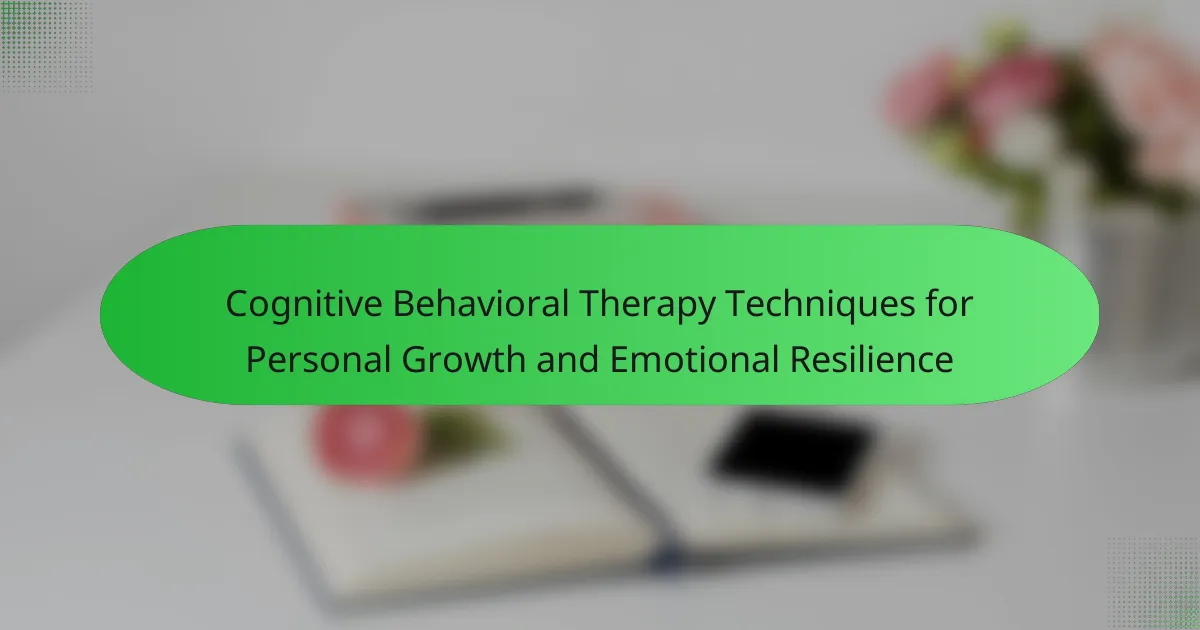Positive affirmations can significantly enhance self-esteem and motivation. This article explores how affirmations foster a positive self-image, the importance of daily practice, and strategies for creating effective statements. It also addresses common challenges faced when using affirmations and offers solutions to overcome them. By incorporating these practices, individuals can transform their mindset and approach to personal and professional challenges.

How do positive affirmations impact self-esteem and motivation?
Positive affirmations significantly enhance self-esteem and motivation by fostering a positive self-image and reinforcing belief in personal abilities. Regular practice of affirmations can lead to improved mental resilience and a more optimistic outlook on challenges. Research indicates that individuals who engage in positive self-talk experience greater motivation and persistence toward their goals. This practice encourages a growth mindset, allowing people to view setbacks as opportunities for learning rather than failures. As a result, the cumulative effect of positive affirmations can transform one’s approach to personal and professional challenges, leading to sustained motivation and higher self-esteem.
What are the psychological mechanisms behind positive affirmations?
Positive affirmations enhance self-esteem and motivation through various psychological mechanisms. They activate positive self-talk, which can reshape negative thought patterns. This process, known as cognitive restructuring, helps individuals replace limiting beliefs with empowering ones. Additionally, affirmations can trigger the brain’s reward system, releasing dopamine, which reinforces the behavior of positive thinking. Regular practice can lead to improved emotional resilience, enabling individuals to cope better with stress and setbacks. This transformation is supported by research indicating that consistent affirmation use correlates with increased self-efficacy and overall well-being.
Why are positive affirmations effective for personal development?
Positive affirmations are effective for personal development because they enhance self-esteem and motivation. They work by reshaping negative thought patterns and fostering a positive mindset. Regular repetition of affirmations can lead to improved self-image and greater resilience against challenges. Studies show that individuals who practice affirmations experience increased motivation and a greater sense of control over their lives. This psychological boost can translate into tangible improvements in personal and professional areas.

Which types of positive affirmations are most beneficial?
Positive affirmations that boost self-esteem and motivation include statements focused on self-worth, achievement, and resilience. Examples are “I am capable of achieving my goals” and “I believe in my abilities.” These affirmations foster a positive mindset and encourage personal growth. Regular repetition enhances their effectiveness, leading to improved self-image and motivation over time.
What are affirmations for self-esteem enhancement?
Positive affirmations for self-esteem enhancement are positive statements that help individuals challenge and overcome negative thoughts. They promote self-acceptance and encourage a growth mindset. Regularly practicing affirmations can lead to improved self-worth and motivation, fostering a more positive self-image. Research indicates that consistent use of affirmations can decrease stress and increase resilience, contributing to overall well-being.
How can affirmations boost motivation and goal achievement?
Positive affirmations can significantly enhance motivation and goal achievement by fostering a positive mindset. They help individuals reframe negative thoughts, boosting self-esteem and resilience. Regularly practicing affirmations can lead to improved focus and determination, ultimately increasing the likelihood of reaching personal and professional goals. Research shows that positive self-talk activates brain regions associated with motivation, reinforcing the belief in one’s capabilities. This psychological boost empowers individuals to take actionable steps towards their aspirations, creating a cycle of success and motivation.

When should positive affirmations be practiced for optimal results?
Positive affirmations should be practiced daily, ideally in the morning or before challenging situations, for optimal results. Consistent repetition reinforces positive self-beliefs, enhancing self-esteem and motivation. Research shows that engaging in affirmations during high-stress moments can significantly improve emotional resilience. Incorporating affirmations into a morning routine can set a positive tone for the day.
What time of day is best for using affirmations?
The best time of day for using affirmations is in the morning. Morning sessions help set a positive tone for the day, enhancing self-esteem and motivation. Engaging in affirmations shortly after waking can reinforce positive beliefs and influence mindset throughout daily activities. Additionally, evening affirmations can serve as a reflective practice, solidifying positive thoughts before sleep.
How often should affirmations be repeated for effectiveness?
Affirmations should be repeated daily for optimal effectiveness. Consistent practice reinforces positive beliefs, enhancing self-esteem and motivation. Research suggests that repeating affirmations multiple times a day, especially in the morning and before bed, can significantly improve their impact. Regular repetition helps to internalize the messages, making them more effective over time.

Which unique attributes make certain affirmations stand out?
Certain affirmations stand out due to their uniqueness in phrasing, emotional resonance, and specificity. Unique attributes include personalized language that reflects individual experiences, vivid imagery that evokes strong emotions, and actionable statements that guide behavior. These elements enhance relatability and effectiveness, making affirmations more impactful.
What are personalized affirmations and how do they differ?
Personalized affirmations are tailored statements that resonate with an individual’s specific experiences and goals, enhancing their effectiveness. Unlike generic affirmations, personalized ones address unique attributes, such as personal challenges or aspirations, making them more impactful for boosting self-esteem and motivation. Personalization increases relevance, leading to greater emotional connection and motivation.
How do cultural influences shape affirmation practices?
Cultural influences significantly shape affirmation practices by determining values, beliefs, and expressions of self-worth. Different cultures emphasize various aspects of self-esteem, impacting how affirmations are formulated and utilized. For example, collectivist cultures may focus on community and relationships, leading to affirmations that reinforce social harmony. In contrast, individualistic cultures often promote personal achievement, resulting in affirmations centered on self-empowerment.
Additionally, language plays a crucial role in shaping the effectiveness of affirmations. Certain phrases or expressions resonate more deeply within specific cultural contexts, enhancing their motivational impact. The integration of cultural narratives into affirmations can also foster a sense of belonging and identity, making them more relatable and effective for individuals.
The unique attributes of affirmation practices can be seen in how they adapt to cultural norms. For instance, some cultures might incorporate spiritual or religious elements into affirmations, while others may focus on psychological techniques. This diversity illustrates the rare adaptations that affirmations undergo to align with cultural identities and values.
Overall, understanding cultural influences on affirmation practices can enhance their effectiveness in boosting self-esteem and motivation. Tailoring affirmations to reflect cultural backgrounds can lead to more meaningful and impactful experiences for individuals.

What common challenges do people face when using positive affirmations?
People commonly face challenges like self-doubt, inconsistency, and skepticism when using positive affirmations. These obstacles can hinder the effectiveness of affirmations in boosting self-esteem and motivation. Self-doubt often leads to negative thoughts that counteract the affirmations. Inconsistency in practice reduces their impact, while skepticism can prevent individuals from fully embracing the process. As a result, overcoming these challenges is essential for harnessing the true potential of positive affirmations.
Why do some individuals struggle to believe in their affirmations?
Some individuals struggle to believe in their affirmations due to deep-seated self-doubt and negative self-perceptions. These beliefs can overshadow positive statements, making them feel insincere or unattainable. Cognitive dissonance occurs when affirmations conflict with existing beliefs, leading to resistance. Additionally, lack of consistent practice weakens the effectiveness of affirmations. Regular reinforcement is essential for transforming beliefs and enhancing self-esteem.
How can negative self-talk undermine affirmation efforts?
Negative self-talk can significantly hinder affirmation efforts by reinforcing limiting beliefs. It creates a cycle of doubt that undermines the positive messages intended to boost self-esteem. For instance, negative thoughts can overshadow affirmations, making them feel insincere or unattainable. This internal conflict can lead to decreased motivation and further negative self-perception. Addressing negative self-talk is essential for effective affirmation practice and overall personal growth.

What are best practices for creating effective positive affirmations?
To create effective positive affirmations, focus on clarity, positivity, and personal relevance. Use the present tense and ensure the statements resonate with your values.
1. Be specific: Clearly define what you want to affirm. For example, instead of saying “I am confident,” say “I confidently express my ideas in meetings.”
2. Use positive language: Frame statements positively. Instead of “I am not afraid,” say “I embrace challenges with courage.”
3. Make it personal: Tailor affirmations to your unique experiences and aspirations. This increases their emotional impact.
4. Repeat regularly: Consistent repetition reinforces beliefs and helps internalize the affirmations, enhancing their effectiveness.
5. Visualize success: Pair affirmations with mental imagery to create a stronger emotional connection and boost motivation.
How to formulate affirmations that resonate personally?
To formulate affirmations that resonate personally, focus on clarity, positivity, and specificity. Start by identifying your core values and goals. Use the first person to create a sense of ownership, such as “I am capable of achieving my dreams.” Ensure the language is positive and present tense. Personalize the affirmations by including unique attributes relevant to your experiences. For example, “I embrace my creativity and express it daily.” Regularly revise your affirmations to keep them aligned with your evolving self.
What role does visualization play in affirmation practice?
Visualization enhances affirmation practice by creating a vivid mental image of desired outcomes. This technique reinforces positive beliefs and boosts self-esteem. When individuals visualize their goals, they engage emotionally, making affirmations more impactful. Research shows that visualization can increase motivation by aligning thoughts with aspirations. By consistently practicing visualization alongside affirmations, individuals can foster a stronger belief in their capabilities and potential.
What are common mistakes to avoid when using affirmations?
Common mistakes to avoid when using affirmations include being overly vague, lacking consistency, and not believing in the statements. Specificity enhances effectiveness; for instance, instead of saying “I am successful,” specify “I achieve my goals daily.” Consistency is crucial; daily practice solidifies positive beliefs. Lastly, ensure genuine belief in the affirmations; doubt can undermine their impact.
How can tracking progress enhance affirmation effectiveness?
Tracking progress significantly enhances affirmation effectiveness by providing measurable feedback. This feedback reinforces positive behaviors and boosts self-esteem, fostering greater motivation. Regularly assessing progress allows individuals to identify areas of improvement, ensuring continued growth. Additionally, maintaining a record of achievements can serve as a powerful reminder of personal capabilities, further solidifying the impact of affirmations on self-worth.
What expert tips can enhance the impact of affirmations?
To enhance the impact of affirmations, focus on clarity, emotion, and consistency. Use specific and positive language that resonates with your goals. Incorporate visualizations to strengthen belief in the affirmations. Repeating affirmations daily creates a powerful habit that reinforces self-esteem and motivation.



